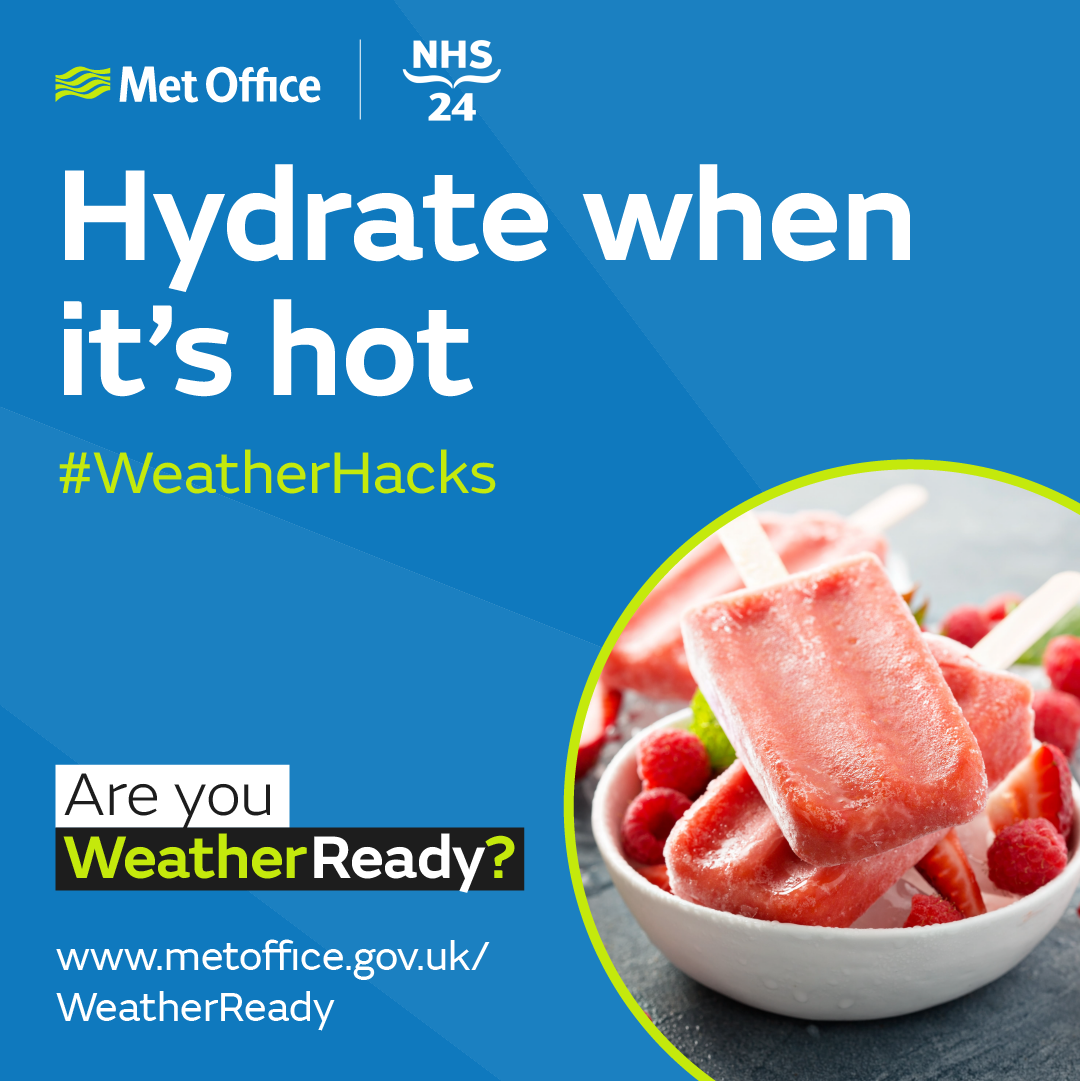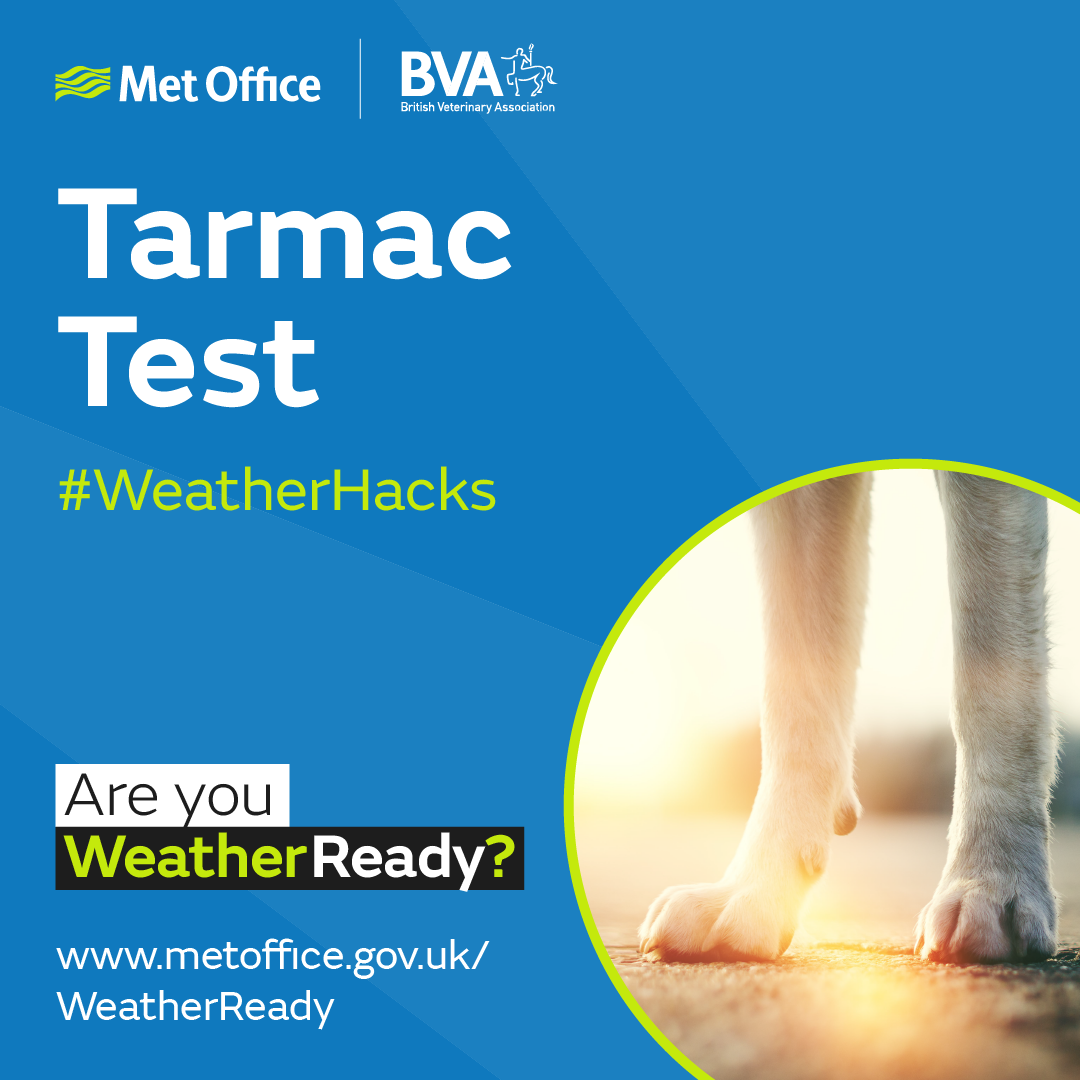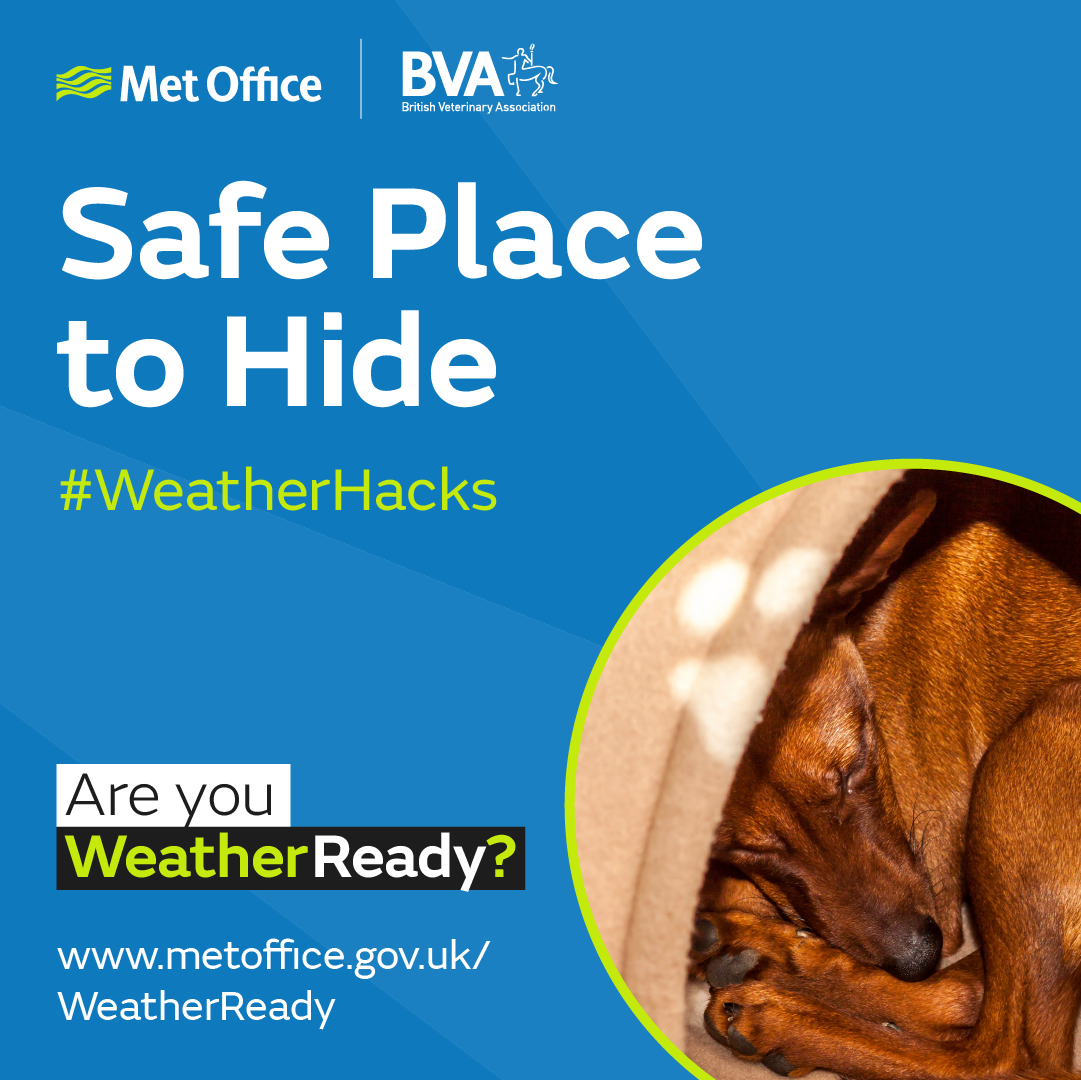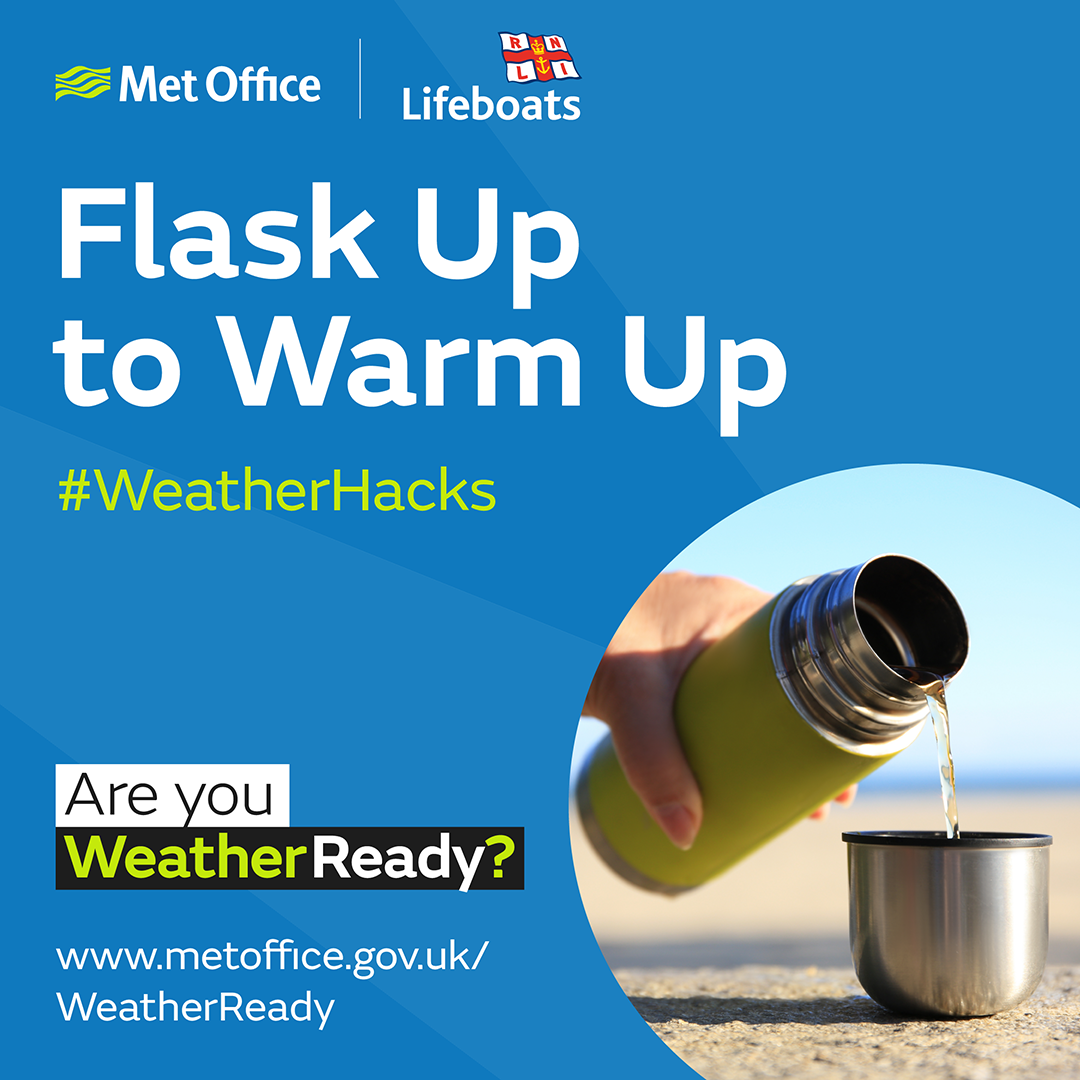Summer #WeatherHacks
A series of simple DIY #WeatherHacks from some of our partners that can help you prepare for the summer.
#WeatherHacks
As part of our summer WeatherReady campaign, which aims to help people take simple steps to prepare for what the weather may bring, we have worked with our partners to provide you with a series of simple, cheap and handy #WeatherHacks you can try to help prepare for the summer.
NHS 24
"Avoid dehydration during hot spells of weather. NHS 24 recommends that you stay hydrated by drinking plenty of cool fluids and eating foods with lots of water content – such as ice lollies, salads, and fruit."

Dr Siama Latif, Associate Medical Director at NHS 24 said: “Most people love when the sun is shining, and being outdoors in the nicer weather is brilliant for your health and wellbeing, but it’s important to remember that health conditions like sunburn or heat stroke are no joke.
“Between 11am and 3pm when the sun is at its hottest, seek shade wherever possible. It can also help by wearing a wide-brimmed hat, sunglasses and long-sleeved shirt. If you need to be out and about, don’t forget the most important thing of all - sunscreen! Don’t be stingy when applying, make sure all areas not covered by clothing are protected and reapply every few hours.
Find out more advice on how to stay fit and well during the warmer months of the year from NHS 24.
British Veterinary Association
"Asphalt can get very hot on a summer day and burn your dog’s paws. Do the five-second tarmac test before taking your dog out- if your hand feels too hot when put against the asphalt, postpone the walk. "

Dogs won’t stop playing and running if it is hot, so it’s up to owners to take action to prevent them overheating. Don’t exercise them in the hottest parts of the day: especially older dogs, overweight dogs, flat-faced breeds or dogs that you know have heart or lung problems. Stick to early morning or late evening.
"Many pets can become unsettled and even distressed during a storm with loud thunder and lightning. Create a well-padded den for your pet to access ahead of any forecast storms and praise them when they are relaxed there, so they come to view it as a safe retreat."
 If you know your dog or cat is particularly stressed by loud noises, talk to your vet to discuss treatment options. This may include drugs to help dogs with noise phobias or pheromone products to apply next to your pets’ den and around the house to keep them calm during a storm.
If you know your dog or cat is particularly stressed by loud noises, talk to your vet to discuss treatment options. This may include drugs to help dogs with noise phobias or pheromone products to apply next to your pets’ den and around the house to keep them calm during a storm.
More expert advice from the BVA is available for looking after your pets in the summer.
RNLI
“Have a warm drink after you’ve been in the water to help keep you cosy. Take a flask with your favourite warm drink in.”

Your body continues to cool down for around 20-30 minutes after being in the water which is why you often feel colder once you’ve got out of the water. Make sure you start the process of getting warm straight away. Once out of your wet swimwear, fancy dress or wetsuit get dressed in warm clothes as soon as possible, put on lots of layers and have a warm drink like a cup of tea or coffee to help rewarming. You might want to have something to eat too whilst chatting with your friends.
RNLI National Water Safety Partner Sam Hughes said: “If you’re planning a dip or swim go with a friend as you can keep an eye out for each other and stay within your depth. Make sure you take a phone in a waterproof pouch which is great for taking photos but also useful in an emergency as if you’re at the coast you can call 999 for the Coastguard. Don’t forget to enter the water slowly as this helps your body adjust to the cold – never jump or dive straight in but splash your arms, chest and back of the neck. Be seen by wearing a brightly coloured swim hat and consider taking a tow float to help your visibility. Once out of the water get warm as quickly as possible, put lots of layers on including a woolly hat!”
Find out more advice about open water swimming and dipping from the RNLI.
WaterSafe
Help prevent water and bacteria from contaminating your tap water supply by ensuring your outside taps have a double check valve installed.

WaterSafe, the national register of approved contractors has shared its top tips to help protect against contamination.
Julie Spinks, Director at WaterSafe says "Sadly, many people don't realise how ill you can get if the water in your hosepipe ‘backflows’ into your drinking water, or becomes contaminated by potentially lethal bacteria, such as Legionella, that can thrive in warm, stagnant water.
“The water supply (water fittings) regulations which keep drinking water safe specify outside taps should always have a double check valve to prevent backflow.
“Homes built since 1999 typically have an inline double check valve built into the supply pipe to the outside tap, and those built before that point usually have one built into the tap.
“Either way, it’s essential to have protection for every outside tap, to prevent potentially harmful backflow – so we’re urging everyone to ‘double-check’.
Take a look at WaterSafe's list of do's and don'ts on how to keep your tap water safe.
If in doubt, seek advice from a WaterSafe-approved plumber to ensure you have the right safety measures in place.
Find out more at: www.watersafe.org.uk


